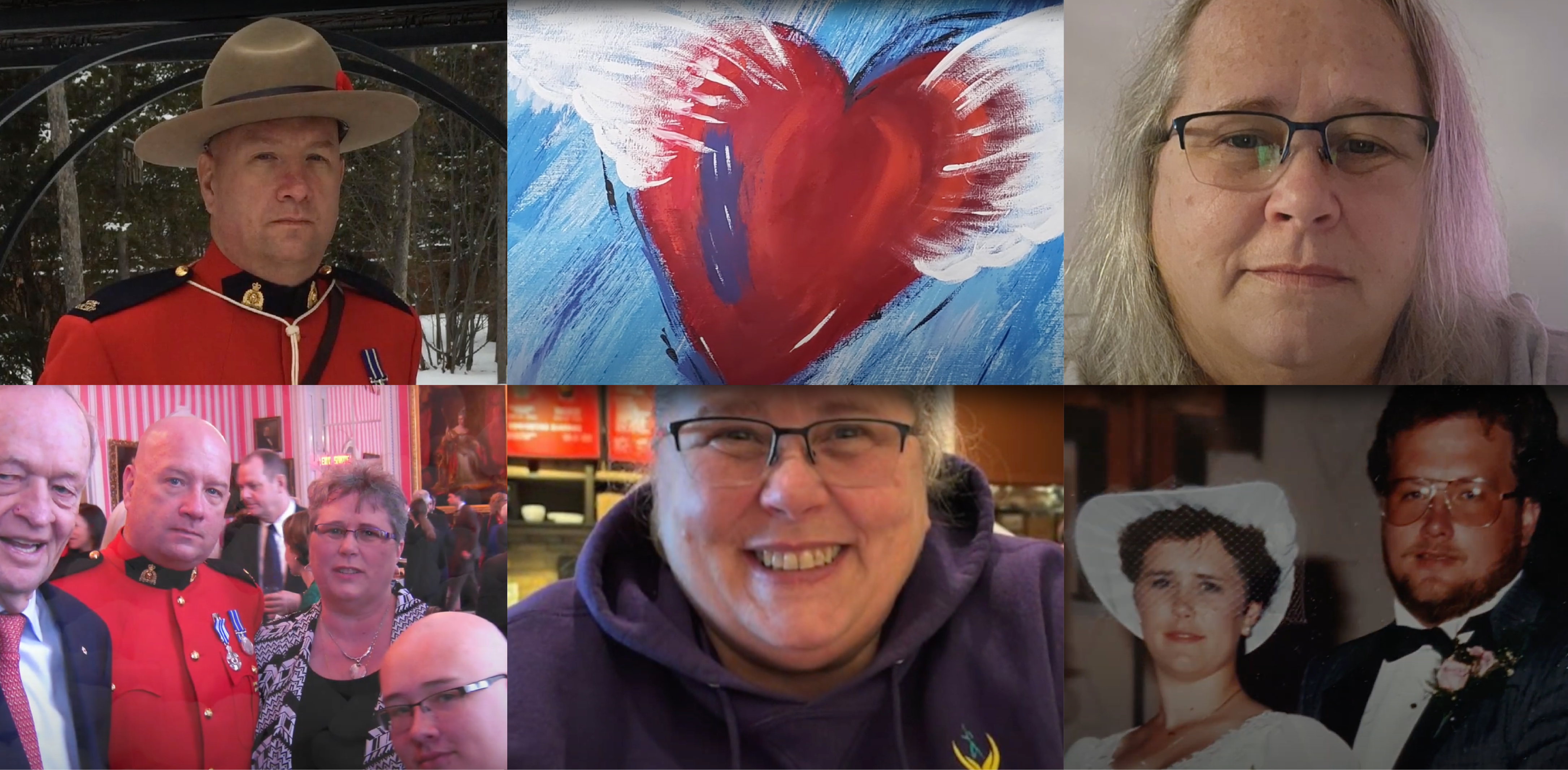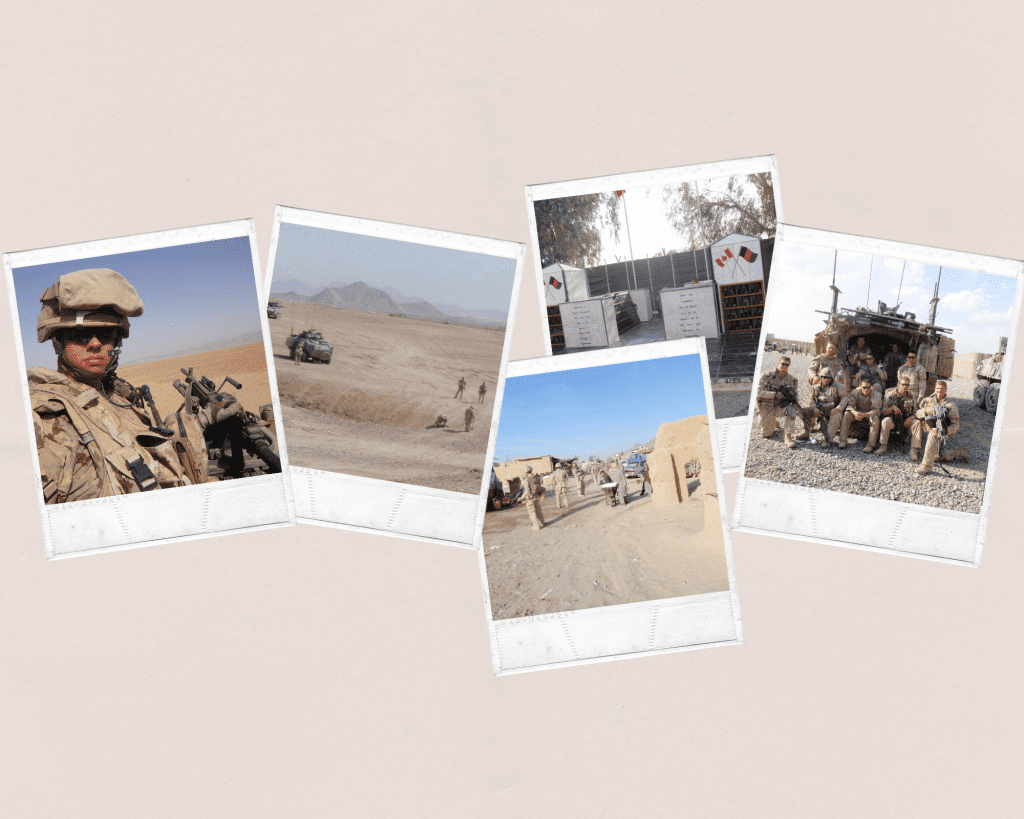- 2024-08-15
- Blog
‘It wasn’t him talking, it was the PTSD’: An RCMP spouse’s journey

Looking back, I can recognize that posttraumatic stress disorder (PTSD) became a part of my life the moment my husband joined the Royal Canadian Mounted Police (RCMP). Within his first month working, someone violently died by suicide on the front lawn of the detachment he was at. This was the first of over 500 dead bodies he would deal with in his 28-year career.
Jim started his career as a general duty member, where he was exposed to a large number of traumatic events. Later, he became a forensic identification officer and the exposure became constant. Initially, the changes in his behaviour were subtle and I didn’t really notice them. As time passed and the exposure increased, the behaviours became more noticeable.
It started with the “simple” things like sitting with his back against the wall and watching everything going on around him. Over time, the “simple” things progressed and new symptoms began to develop. The watching progressed to a point of hypervigilance. Interestingly people, like those on his hockey team, saw the hypervigilance as a good thing. They could go to their Vegas tournament and he would always be on the lookout, saving them from a couple of dodgy situations. The neighbours thought it was great as he acted as a one-man neighbourhood watch. We, on the other hand, began to live in a fortress. Cameras, motion lights and alarms were installed at home. We had three locks on the basement door and two on every other door. Once the obsessive-compulsive disorder (OCD) took hold, every door had to be checked multiple times before we were able to go anywhere.
It became increasingly difficult to go out to busy or unfamiliar places or places where he didn’t know who was going to be there. He became suspicious of anyone he didn’t know. It seemed as if everyone was guilty of something. Vacations were difficult because he didn’t know how to relax. He was always watching and waiting for something to happen.
Disturbed sleep and bad dreams became “normal.” As his sleep was disturbed, so was mine. The slightest sound would rouse him from bed, sending him on a search for the cause of the noise. Over-the-counter sleep aids became a staple, even though they didn’t work. The lack of sleep lead to tiredness, which led to the use of over-the-counter stimulants and excessive amounts of Red Bull to try to stay awake. Hidden use of non-prescription drugs increased dramatically. I was shocked when I cleaned out one of his cupboards at work. I truly had no idea.
Some of the sleep disturbance could be chalked up to flashbacks, but mostly, the flashbacks would be in the form of him talking about a file. I could always tell when one file bothered him more than others by the number of times that he would talk to me about it. I pointed this out to him one day and he had no idea that he was doing that. I was happy to be there to listen, to let him process it and get it off his chest. But who was there to listen to me? I heard far more than any “ordinary” spouse could imagine. The flashbacks progressed to the point that on one occasion he was dodging from and swatting at imaginary flies while in the shower. There is nothing out there to prepare a spouse to deal with that!
The emotional detachment necessary for him to do his job overflowed into his everyday life as he became cold and unemotional. He became unable to see things from someone else’s perspective — he had lost his sense of empathy. Having seen so much death, he couldn’t understand why people would grieve for long periods of time and thought they should just “get over it.“ It got the point where I told him that he was a “cold-hearted bastard.“ He agreed that that was true but that was who he was. Through all that, I know that he continued to love me and our sons, and we continued to love him.
Over time, aggressive behaviour began to increase, mostly verbally. Double standards, criticism and putdowns became a regular part of life. When you’ve known someone as long as we had known each other, he knew what to say that would hurt the most. I often had to remind myself that it wasn’t him talking, it was the PTSD.
Yet Jim was the most loving and caring person when it came to his Family. He would do anything for me and our sons. He wanted to give us the world. Instead, he gave us depression, anxiety, OCD and secondary traumatic stress. Jim knew that he was struggling and openly accepted his PTSD diagnosis. He sought treatment and was getting help, but nobody thought to question the effect that his PTSD was having on the rest of the Family.
Looking back, I wish we could have seen how Jim’s PTSD was affecting all of us, not just him. Maybe things would have been different, but maybe, it was supposed to be that way. While I would give anything for him not to have suffered from it, in many ways, living with Jim’s PTSD made us stronger as individuals and stronger as a Family.
– Tanis Giczi
Are you a Veteran or Family member with a story to tell? Get in touch with us and you may be featured on this blog!

